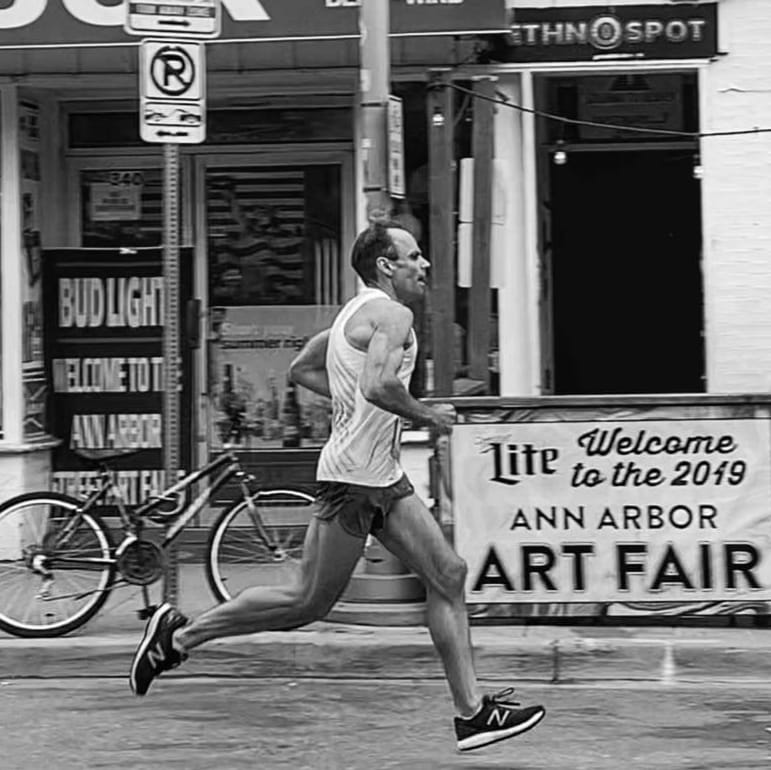What motivated you to start at AFS? What keeps you coming back?
I’ve been running regularly for 20 years but my times were slipping. I wanted to make changes to nutrition and strength to mitigate the risk of injury, allowing me to run more miles at intensity. These changes are much easier to make with a support structure. In the course of 12 months we’ve had success in these two areas. My body fat percentage has dropped from 16 percent to 8 percent, and I have been injury-free for a year. I ran 2:54:28 in the Chicago Marathon, which is my fastest marathon time since turning 40 in 2015. My best ever time is 2:47:54, set at the age of 36, and running this time is again a realistic goal.
How do you define your success?
Running times are an obvious and objective measure of success. But they aren’t the only useful metric because they’re influenced by course profile and weather conditions. The more useful, day-to-day feedback is whether I can consistently train well and make good nutritional choices. I know that if I stay on track on a daily, weekly, and monthly basis, the times till take care of themselves.
Tell us about a moment where you were really proud of yourself.
Pride comes from taking a risky bet that pays off. It’s important to ask ourselves, “What’s the worst that could happen?” Most of the time, the worst possible outcomes just aren’t that bad.
In the lead-up to the 2009 Gold Coast Marathon I was injured 7 weeks out from the event. I didn’t run a step for 6 weeks to recover. But two things happened which led to a successful race (2:52:47). First, I had put in consistent effort for months prior to becoming injured – I was in good shape and decided to take the risk of stepping to the start line. Second, I was forced to adopt a mindset that, no matter what, I was ready for the race. Any self-doubt would have been fatal to the outcome. But I take pride in that race because I took the risk of failure, and can’t recall running a more positive race.

What do you expect of yourself in the future?
For me, the most important aspect of building fitness is making mindful choices each day on training and nutrition. This doesn’t mean being obsessive. It means that each meal and training decision should be a conscious choice. Drink beer and have a steak because you feel like a beer and a steak, or you are being social with friends – that’s a mindful choice. The contrasting decisions are when we respond to stress with high sugar and high fat snacks because they provide a short-term emotional boost.
What I want is to make mindful choices each day on nutrition and training, in the knowledge that each mindful choice ultimately leads to tangible results. I expect to start each race with the confidence that I ran run well, on the back of consistent application over time. I know that times could improve or plateau – running times slow by about 1% per year for the average masters runner. But they don’t necessarily have to if we make a series of mindful choices.
What advice would you give others looking to start with AFS?
Just start. “What’s the worst that can happen?”
Improvements in nutrition and training are challenging because for most of the hours in the day we are bombarded with impediments to progress. There is an array of dirt-cheap, tasty snacks within easy reach 24/7, and most people we interact with have a different set of priorities. It is almost impossible to counteract these influences with sheer willpower – our minds are not wired that way. Changes require process and support. The only way to know what process and support works for you is to start.


